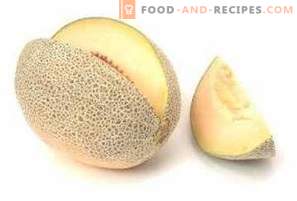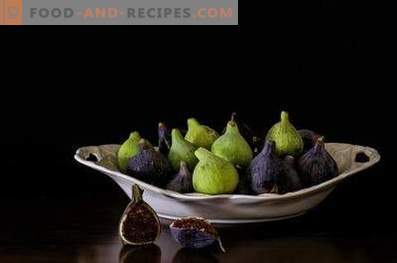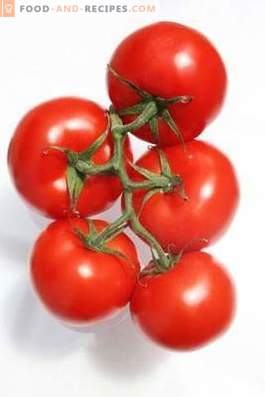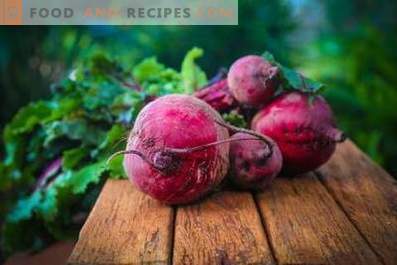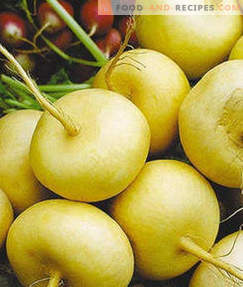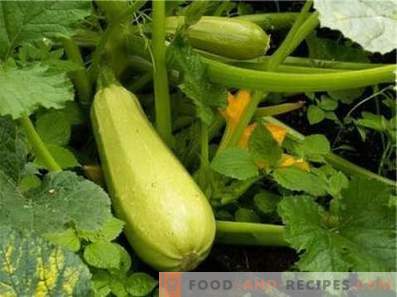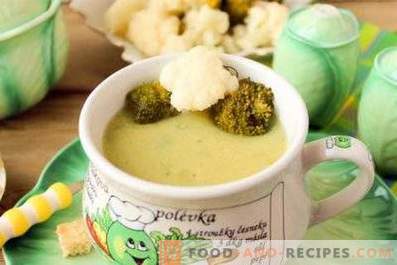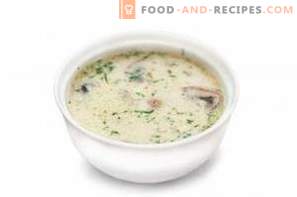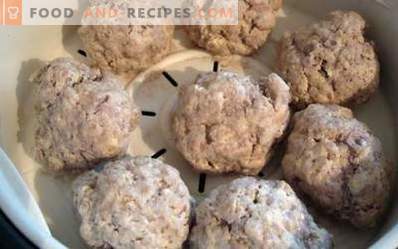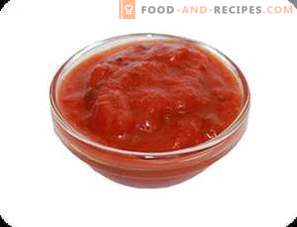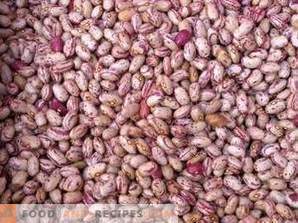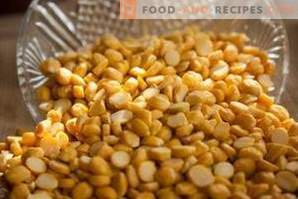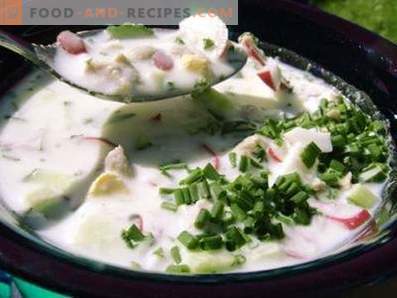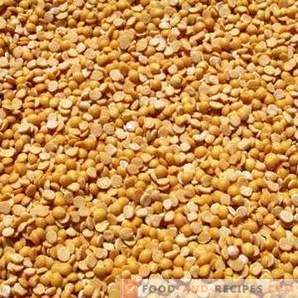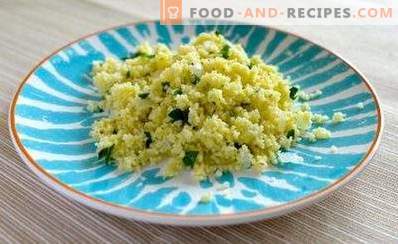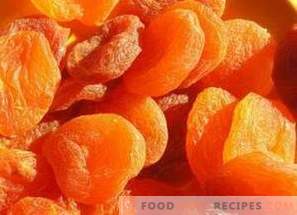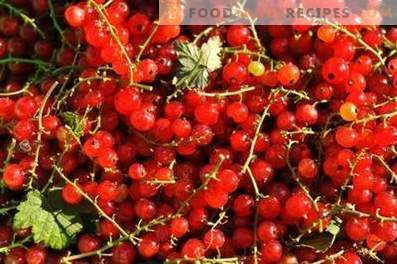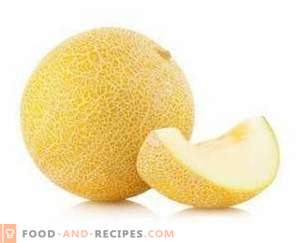
Melon - melon crop, belonging to the pumpkin family. The homeland of this plant is considered to be Small and Central Asia. Modern melon varieties obtained by the cultivation of its Asian field and weed species. It is believed that the first cultural forms of this plant appeared in Northern India and on the territories of Iran located next to it several hundred years before the beginning of our era. Later, the melon was imported to Central Asia, Egypt and China. In the Middle Ages, this culture began to grow in Europe. It reached the territory of modern Russia only in the 15th century.
Melon is a herbaceous annual plant with a well-developed root system. Creeping stem of this culture, equipped with thin mustaches, can reach three meters in length. Large heart-shaped green leaves of the plant are located on long, thick petioles. The melon blooms in late June or in July with large pale yellow flowers. The fruits of the plant are cylindrical or spherical pumpkins of yellow, brown, white or green color. Up to 8 fruits weighing from 1500 g to 10 kg can be formed on one stem. Today, there are many varieties of this culture, differing from each other in shade, aroma, size, taste and composition of fruits.
Most often, melon is eaten raw (peeled and cut into slices). The pulp of this culture is dried, dried, used to make fruit honey, candied fruits, compotes and preserves. Along with this, fruits and melon seeds are actively used in traditional medicine.
Choose a tasty and well-ripened melon is easy. To do this, you must meet a few simple conditions:
- make sure that a characteristic pleasant aroma emanates from the fruit;
- slam the palm of the fetus on the surface of the fetus and make sure that the sound of the blow is deaf and not clear;
- press the peel on the side of the fruit opposite the stalk and make sure that it springs slightly when pressed (for a not fully ripe melon, the skin is very firm).
Nutritional value of melons and vitamins in the composition of its pulp
Nutritional value pulp of ripe melon (100 g):
- 7, 399 g of carbohydrates;
- 0, 594 g of proteins;
- 0, 269 g of fat;
- 0, 877 g of fiber;
- 89, 933 g of water;
- 0, 194 g of organic acids;
- 0, 099 g of unsaturated fatty acids;
- 0, 089 g of starch;
- 0, 568 g of ash;
- 7, 244 g disaccharides and monosaccharides;
- 0, 099 g of saturated fatty acids.
Vitamins in the composition of the melon (for every 100 g):
- 0, 371 mg of vitamin PP;
- 0, 037 mg of riboflavin (B2);
- 66, 917 μg of retinol equivalent (A);
- 19, 973 mg of ascorbic acid (C);
- 0, 484 mg of niacin equivalent;
- 0, 192 mg of pantothenic acid (B5);
- 0, 389 mg beta-carotene;
- 034 mg of thiamine (B1);
- 0.054 mg of pyridoxine (B6);
- 5, 977 μg of folic acid (B9);
- 0.092 mg of vitamin E.
Melon calories
There is an erroneous opinion that melon is a high-calorie product that is contraindicated for those who want to lose weight. In fact, the pulp of the fruit of this plant has a relatively low energy value.
- Caloric content of a melon (100 g) - 34, 898 kcal.
- Caloric content of 1 melon fruit (average size - 2, 5 kg) - 872, 45 kcal.
- Calories of dried melon - 342, 116 kcal.
- Calorie melon jam - 196, 144 kcal.
- Calorie melon candied fruit - 318, 761 kcal.
Trace elements and macronutrients in melon
Melon contains a whole complex of substances, without which the full and normal functioning of the body is impossible.
Macroelements in melon composition:
- 15, 992 mg of calcium;
- 11, 918 mg of phosphorus;
- 12, 918 mg of magnesium;
- 117, 441 mg of potassium;
- 9, 881 mg of sulfur;
- 31, 114 mg of sodium;
- 49, 114 mg of chlorine.
Trace elements in melon composition:
- 0, 988 mg of iron;
- 1, 891 mkg cobalt;
- 46, 112 μg of copper;
- 0, 087 mg of zinc;
- 19, 404 μg of fluorine;
- 0, 034 mg of manganese;
- 1, 911 micrograms of iodine.
Useful properties of melon
- Regular consumption of melon has a sedative effect on the central nervous system, as well as on the peripheral nervous system. The flesh of its fruits is included in the diet of people who have undergone severe stress, are suffering from mental illness, are in a depressed state.
- It has been established that compounds present in the composition of melons have a beneficial effect on the immune system. Regular inclusion of the pulp of the fruit of this plant in the diet helps to increase the body's resistance to bacterial, parasitic and viral infections.
- Gruel made from the pulp of melon fruit is an effective means of combating psoriasis, vitiligo, blistering dermatoses, lichen planus and other dermatological diseases. Masks based on it help reduce hair loss and prevent baldness.
- Melon contains compounds that increase the hemoglobin concentration in the blood. Therefore, the pulp of its fruit is shown to people suffering from anemia and other diseases of the hematopoietic system.
- The melon contains many enzymes and other compounds that have a beneficial effect on the intestinal function. Melon pulp is recommended for persons suffering from any diseases of the digestive system (except acute inflammatory).
- The melon is recommended to include in the diet of persons who have been diagnosed with a total depletion of the body.
- It has been proven that the substances contained in the melon pulp increase the effectiveness of the action of antibacterial drugs and reduce the risk of side effects from taking them.
- Melon juice and pulp have pronounced diuretic and mild laxative properties. For this reason, this fruit is recommended for people suffering from edema, diseases of the urinary system, hemorrhoids and constipation.
- A decoction prepared on the basis of melon seeds is used as a diuretic for kidney diseases. To prepare the medicine, the vegetable raw materials (15 g) are crushed, filled with water (250 ml) and boiled for 10 minutes. Ready to drink drink during the day.
- The systematic use of melon pulp in food contributes to the weakening of the symptoms of gout and rheumatism.
- According to pediatricians, melon and dishes based on it are useful for children recovering from long-term illnesses.
- Nutritionists recommend a melon to older people who have been diagnosed with vascular diseases of the heart and brain.
- Substances contained in melon fruits contribute to the excretion of poisons, toxins, and harmful cholesterol.
- Saturated broth of crushed melon seeds is an effective cosmetic for acne and acne. In addition, the liquid has light whitening properties and can be used to combat freckles and unwanted pigment spots on the skin.
- The juice and pulp of the melon fruit are added to cosmetics that have a rejuvenating effect. In addition, it is proved that their inclusion in the daily menu helps to improve the condition of the skin. The skin becomes more elastic, smooth, supple, matte, many defects disappear from its surface.
- Masks based on gruel made from the pulp of melon fruit strengthen hair follicles and promote hair growth.
- Dried melon seeds are an effective folk remedy that helps men cope with violations of potency. Specialists in the field of alternative medicine recommend that the representatives of the stronger sex, suffering from impotence or who wish to prevent the development of this pathology, daily take three teaspoons of the powder obtained by grinding them in a coffee grinder.
- The compounds present in the composition of the melon pulp contribute to the production of serotonin in the body - a hormone, mistakenly called the “hormone of happiness.” Serotonin is involved in blood coagulation processes, increases vascular permeability, activates the blood formation system, is responsible for the occurrence of allergic, inflammatory reactions and pain impulses from the affected area, improves peristalsis, favorably affects the process of childbirth and performs many other important functions.
Contraindications and harmful properties of melon
- Excessive consumption of melons can cause cracks in the intestines and diarrhea.
- Nutritionists do not recommend eating the melon's flesh on an empty stomach, drinking yogurt or cold water after eating it, and combining it with strong alcoholic beverages.
- In melon pulp there is a large variety of sugars. For this reason, the melon fruit is not recommended to include in the diet of persons suffering from diabetes.
- The unripe melon fruits are contraindicated for people suffering from a stomach ulcer or gastritis.
- Traditional medicine preparations prepared on the basis of melon seeds can harm the health of people suffering from spleen diseases.
- The absolute contraindication to the consumption of melons in food is individual intolerance. At the same time, individuals who have an increased tendency to develop allergic reactions to other stimuli should also be careful when included in the diet of the fruits of this plant.
